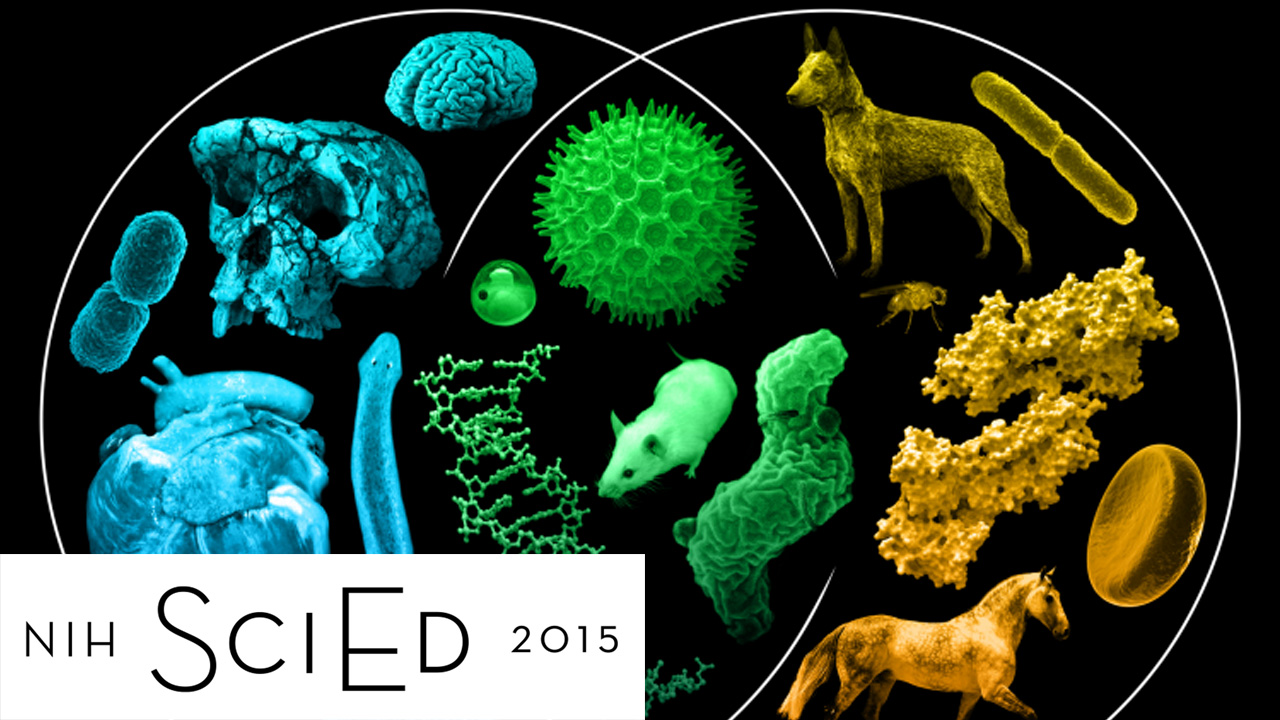NIH SciEd 2015: Annual Conference for NIH Science Education Projects
Increasing Diversity and Promoting Workforce Development via Synergistic Trans-NIH and Trans-Agency Interactions

Held May 20–23 in Washington, DC, NIH SciEd 2015 was the fourth NIH-wide conference for science education projects funded by the National Institutes of Health. The 77 projects represented at the conference were funded by the following programs:
- Science Education Partnership Award (SEPA), Office of Research Infrastructure Programs (ORIP), Division of Program Coordination, Planning and Strategic Initiatives (DPCPSI), Office of the
Director - Science Education Drug Abuse Partnership Award (SEDAPA), National Institute on Drug Abuse (NIDA)
- NIH Blueprint for Neuroscience Research Science Education Award
- Science Education Awards, National Institute of Allergy and Infectious Diseases (NIAID)
The 218 conference participants included 65 project PIs, 22 Co-PIs, 31 project managers, 40 project staff, 9 graduate students and post-doctoral fellows, 16 evaluators, 5 teachers, 13 other individuals, and 17 federal government employees – NIH staff and representatives from other federal agencies involved in science, technology, engineering and mathematics (STEM) education at the pre-kindergarten – grade 12 (P-12). The latter included the US Department of Education (ED), the National Science Foundation (NSF), the National Aeronautics and Space Administration (NASA), the National Oceanic and Atmospheric Administration (NOAA) the US Department of Agriculture (USDA), and the Department of Energy (DoE).
The conference theme was “Increasing Diversity and Promoting Workforce Development via Synergistic Trans-NIH and Trans-Agency Interactions.” Dr. Clyde Yancy (Northwestern University) gave an opening keynote address that reported on the findings of the NIH Scientific Management Review Board Working Group on Pre-College Engagement in Biomedical Science. The Report provided trans-NIH and trans-agency findings and recommendations to guide NIH’s investment in pre-college education. Later in the meeting, participants engaged in rotating small group discussions about how their projects can support the SMRB recommendations.






